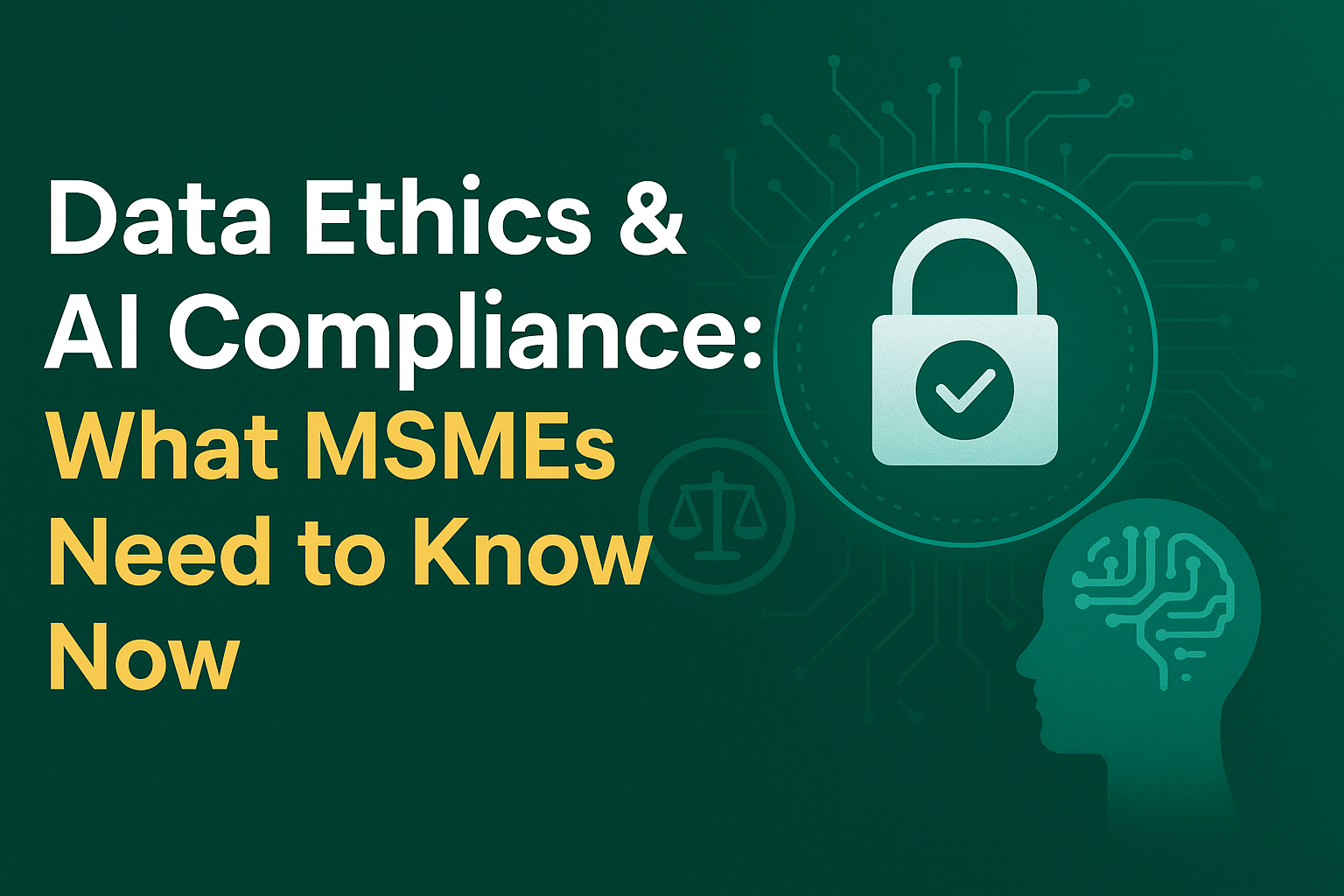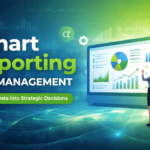Data Ethics & AI Compliance: What MSMEs Need to Know Now
Artificial Intelligence (AI) is transforming how Micro, Small, and Medium Enterprises (MSMEs) operate—streamlining workflows, improving customer insights, and driving business growth. But with these opportunities comes a crucial responsibility: ensuring data ethics and AI compliance.
For MSMEs, understanding and applying ethical principles in data handling is not just about avoiding penalties—it’s about building trust, transparency, and long-term credibility.
🔹 What Is Data Ethics?
Data ethics refers to the responsible collection, storage, and use of data in a way that respects privacy, fairness, and human rights.
For MSMEs, this means:
-
Collecting only necessary data from customers.
-
Being transparent about how that data is used.
-
Protecting sensitive information from misuse or unauthorized access.
Ethical data use is not only about compliance—it’s a core part of customer loyalty and brand reputation.
🔹 Understanding AI Compliance
AI compliance ensures that your AI tools, models, and decisions follow legal, regulatory, and ethical standards. As AI becomes more integrated into MSME operations (like customer service chatbots, credit assessments, or HR tools), non-compliance can lead to major risks—both legal and reputational.
In 2025, AI governance frameworks are evolving globally, including:
-
EU AI Act (for fairness and transparency in AI).
-
India’s upcoming Digital Personal Data Protection (DPDP) Act.
-
OECD and UNESCO AI principles focusing on responsible innovation.
MSMEs must stay informed about these frameworks to ensure their systems align with ethical AI standards.
🔹 Why Data Ethics and AI Compliance Matter for MSMEs
-
Customer Trust: Ethical data use builds credibility and long-term relationships.
-
Legal Protection: Compliance reduces the risk of heavy fines and lawsuits.
-
Competitive Edge: Ethical AI systems perform better and are more transparent.
-
Investor Confidence: Businesses with compliance frameworks attract more funding.
Simply put, data ethics and AI compliance are not costs—they’re strategic investments.
🔹 Key Steps for MSMEs to Ensure Compliance
1. Audit Your Data Practices
Regularly review what data you collect, how it’s stored, and who has access. Ensure it’s collected lawfully and transparently.
2. Implement Privacy Policies
Publish clear data usage and privacy policies on your website. Let customers know how their data helps improve services.
3. Choose Ethical AI Tools
Use AI solutions that provide explainable results and transparency. Avoid tools that use biased datasets or opaque algorithms.
4. Train Employees
Conduct training on data privacy, cybersecurity, and ethical AI decision-making. Awareness is the first step to compliance.
5. Stay Updated with Laws
Monitor new data protection laws like India’s DPDP Act or the EU AI Act if you deal with global customers.
6. Document Everything
Keep compliance reports, consent records, and audit trails ready. Documentation helps prove ethical intent during legal or partner reviews.
🔹 The Future of Ethical AI for MSMEs
By 2025 and beyond, AI compliance will no longer be optional—it will be a core business standard. MSMEs that proactively adopt data ethics will gain a massive advantage.
Future-ready MSMEs will combine innovation with integrity, using AI responsibly while earning customer trust through transparent practices.
🔹 Final Thoughts
Data ethics and AI compliance are no longer topics for large corporations only. For MSMEs, they define business credibility, customer trust, and sustainable growth.
In a digital-first economy, the question isn’t whether you should comply—it’s how soon you start building your ethical AI foundation.






